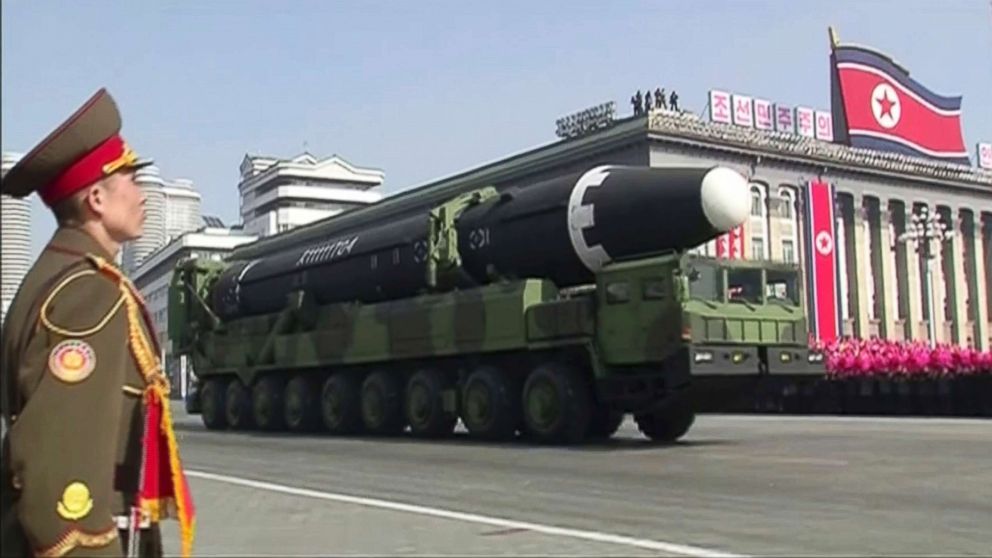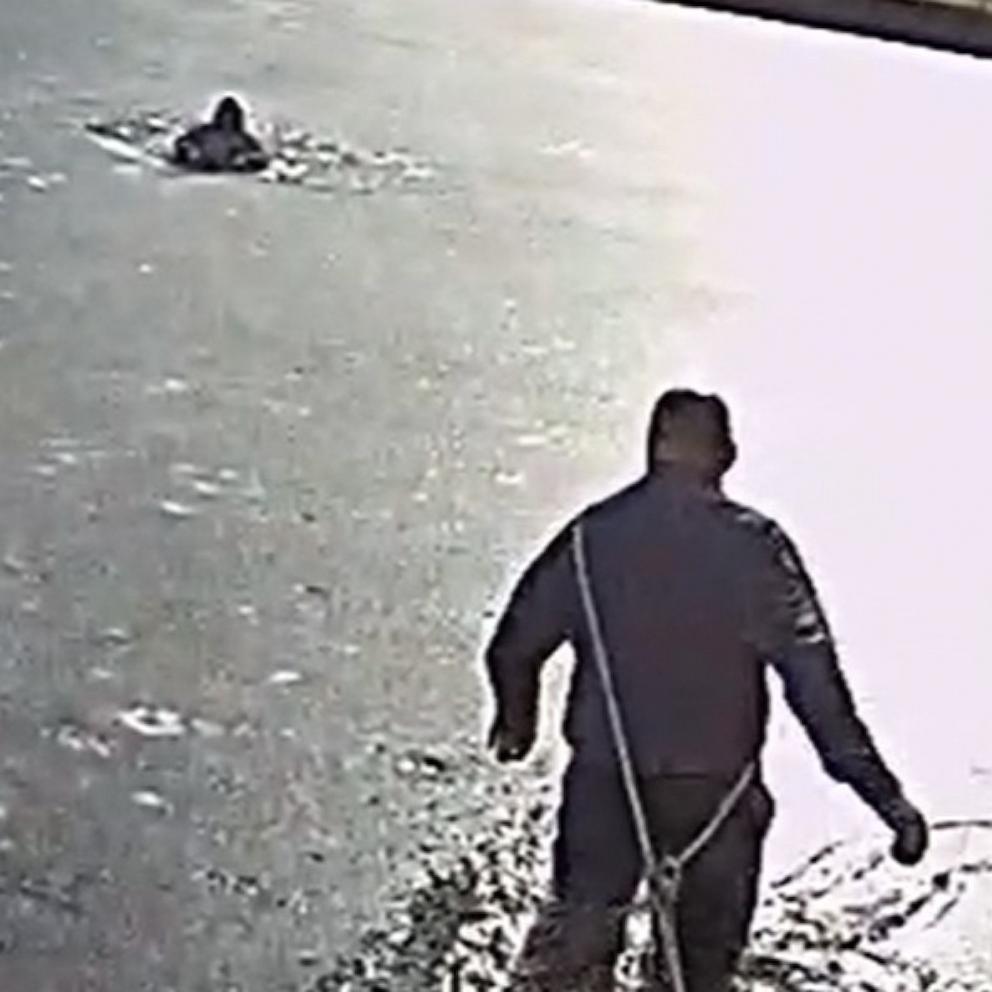Why N. Korea's goose-stepping military parade was more than just show
PYEONGCHANG, South Korea -- North Korea threw a choreographed military parade in Pyongyang today, on the eve of the 2018 Winter Olympics in South Korea.
The display of might included hundreds of goose-stepping soldiers in disciplined formation and rows of missiles and tanks to mark the 70th anniversary of the founding of the country’s military.
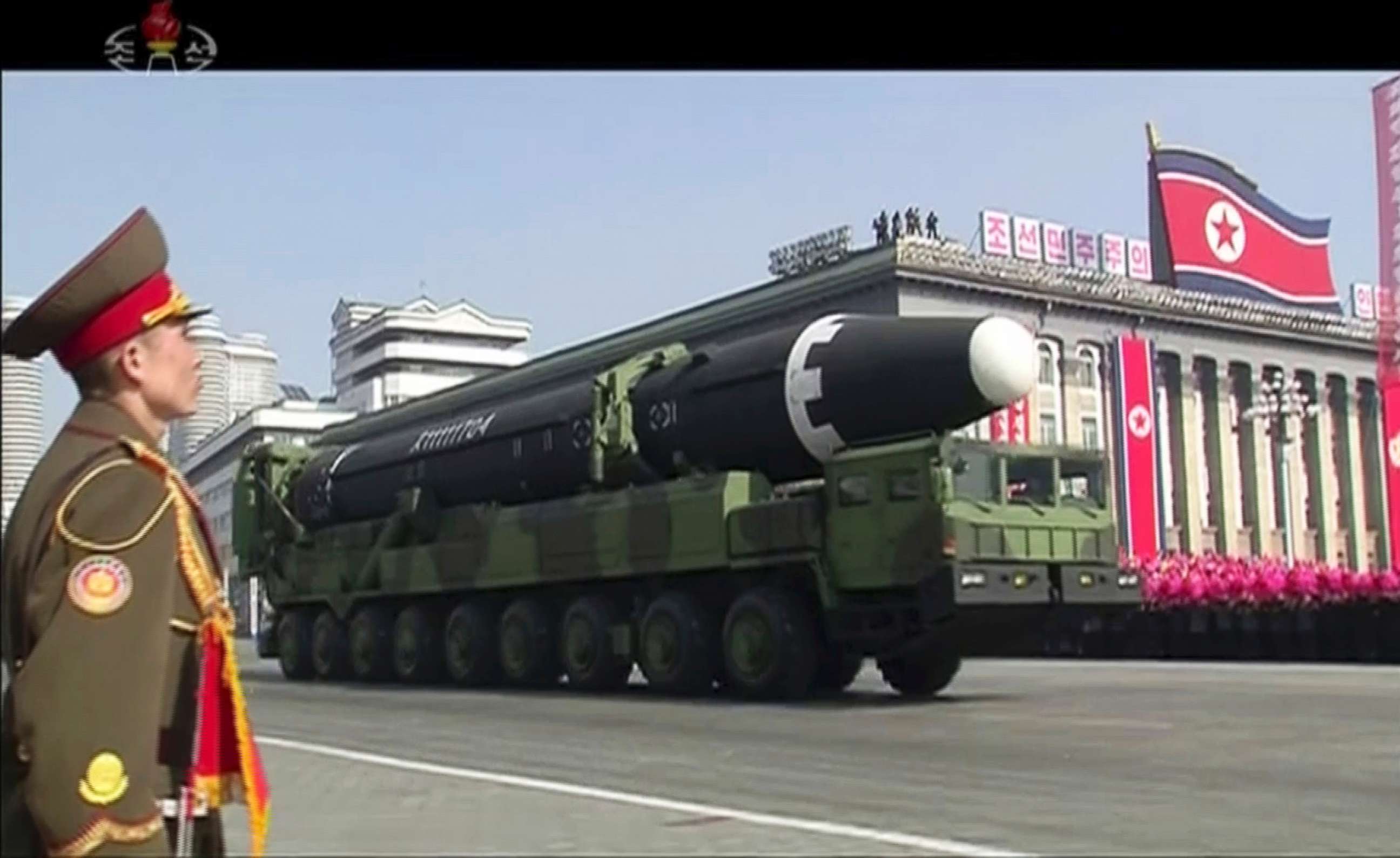
"As long as the imperialism remains on the earth and as long as the anti-North Korea policy of the United States continues, the mission of our military, which is to protect our country and people and secure peace, can never change," North Korean leader Kim Jong Un, sporting a black coat and black fedora, said from a podium alongside wife Ri Sul-Joo and senior military commanders.
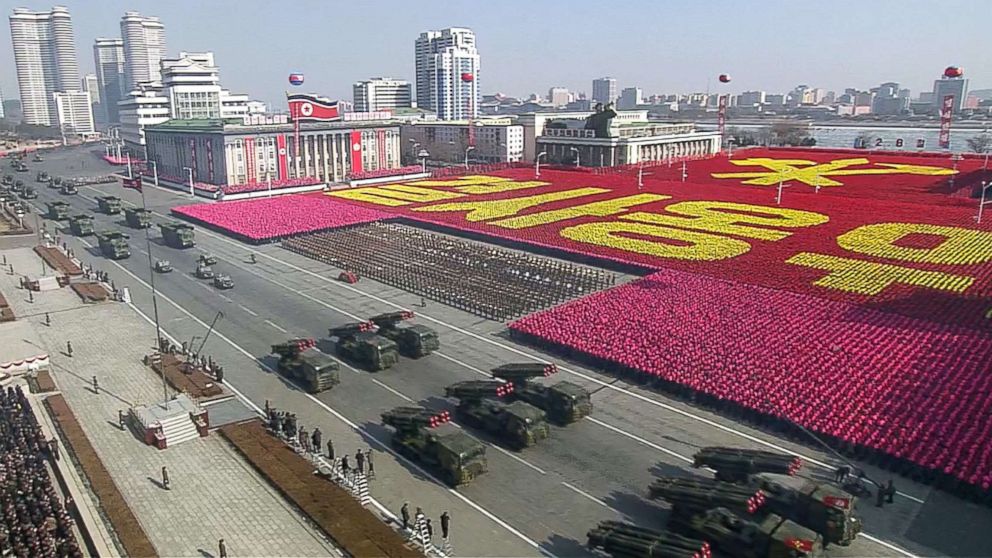
The government had no live broadcast of the parade that started at 10:30 a.m. local time in Kim Il Sung square, instead choosing to air an edited version of the parade later in the afternoon.
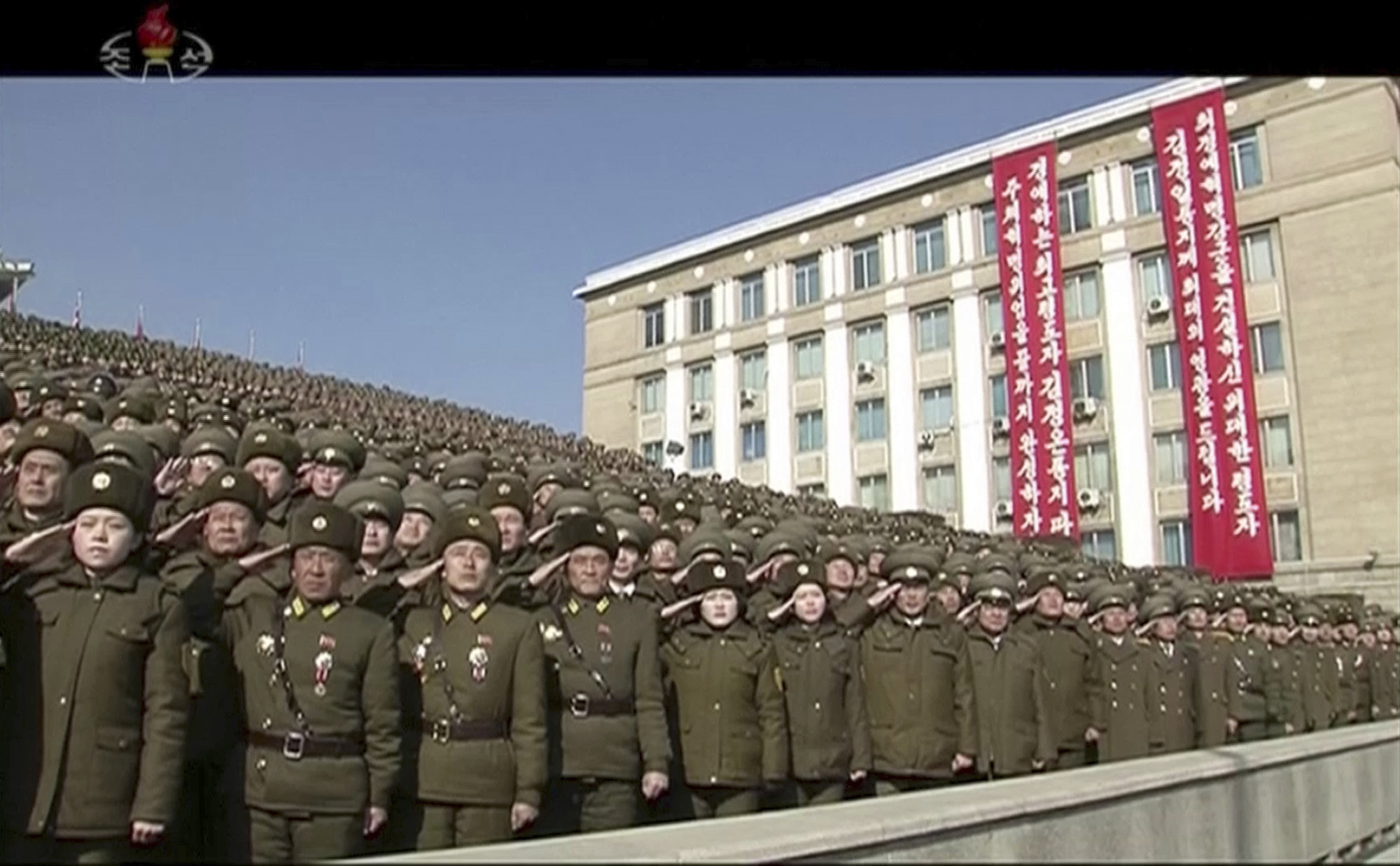
The video showed a parade that seemed to have been shorter than previous ones, but Seoul welcomed the lower profile event. And some analysts said the North was intentionally trying not to provoke South Korea amid the recent sprit of detente that includes North Korea's participation in the Pyeongchang Olympics starting this week in the South.
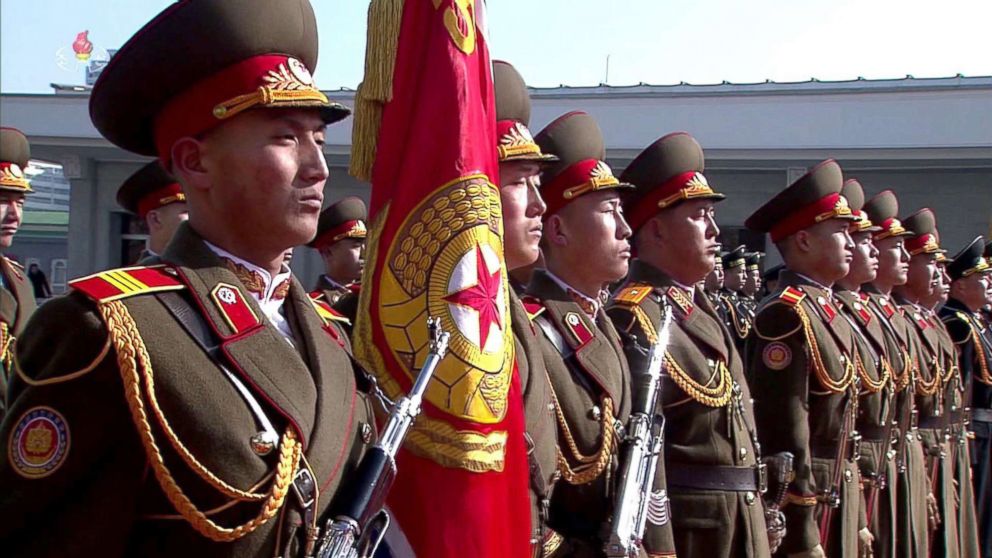
But the parade also revealed more disconcerting evidence of North Korea’s progression toward its goal of acquiring a nuclear-tipped ballistic missile capable of reaching the United States.
ABC News counted seven intercontinental ballistic missiles with that kind of range – three Hwasong-14s and four Hwasong-15s – on the footage from today’s parade. U.S. intelligence reportedly believes North Korea has between 20 and 50 nuclear warheads in its inventory.
“At the end of the day you have to remember that every country that has ever wanted nuclear weapons has gotten them,” said ABC News contributor Steve Ganyard, a former deputy secretary of state and retired Marine Corps colonel.
“The [Trump] administration is still signaling that we’re going down the path of eventual confrontation. The only alternative is to go down the path of the Cold War and fall back on deterrence. They have to know that there is only so far they can go or face annihilation.”
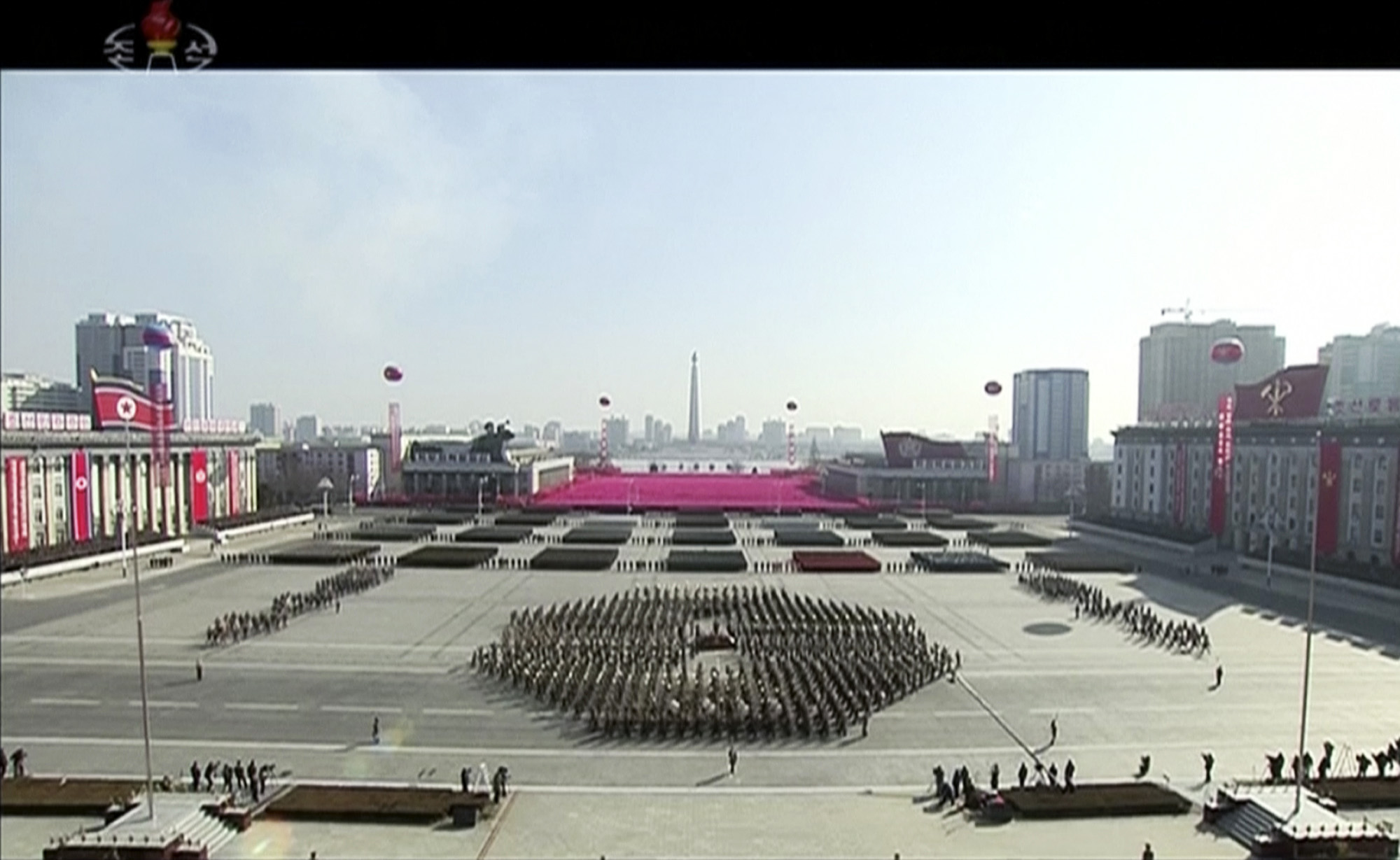
September’s underground test revealed that North Korea has a nuclear weapon more powerful than the bombs that leveled Hiroshima and Nagasaki in 1945, but it’s unclear whether it has a nuclear warhead small enough to fit on a missile.
And while November’s missile launch demonstrated that Kim can build intercontinental ballistic missiles with the range to reach all parts of the United States, no long-range missile has survived re-entry on the way down to its target.
But even if North Korea has not yet cracked the size and durability challenges, Ganyard said, the United States has to assume the worst. “We have to acknowledge that threat as legitimate even though they haven’t demonstrated the two things in the chain,” he said.
“We have to at least acknowledge they have that capability. We can’t bet against it.”
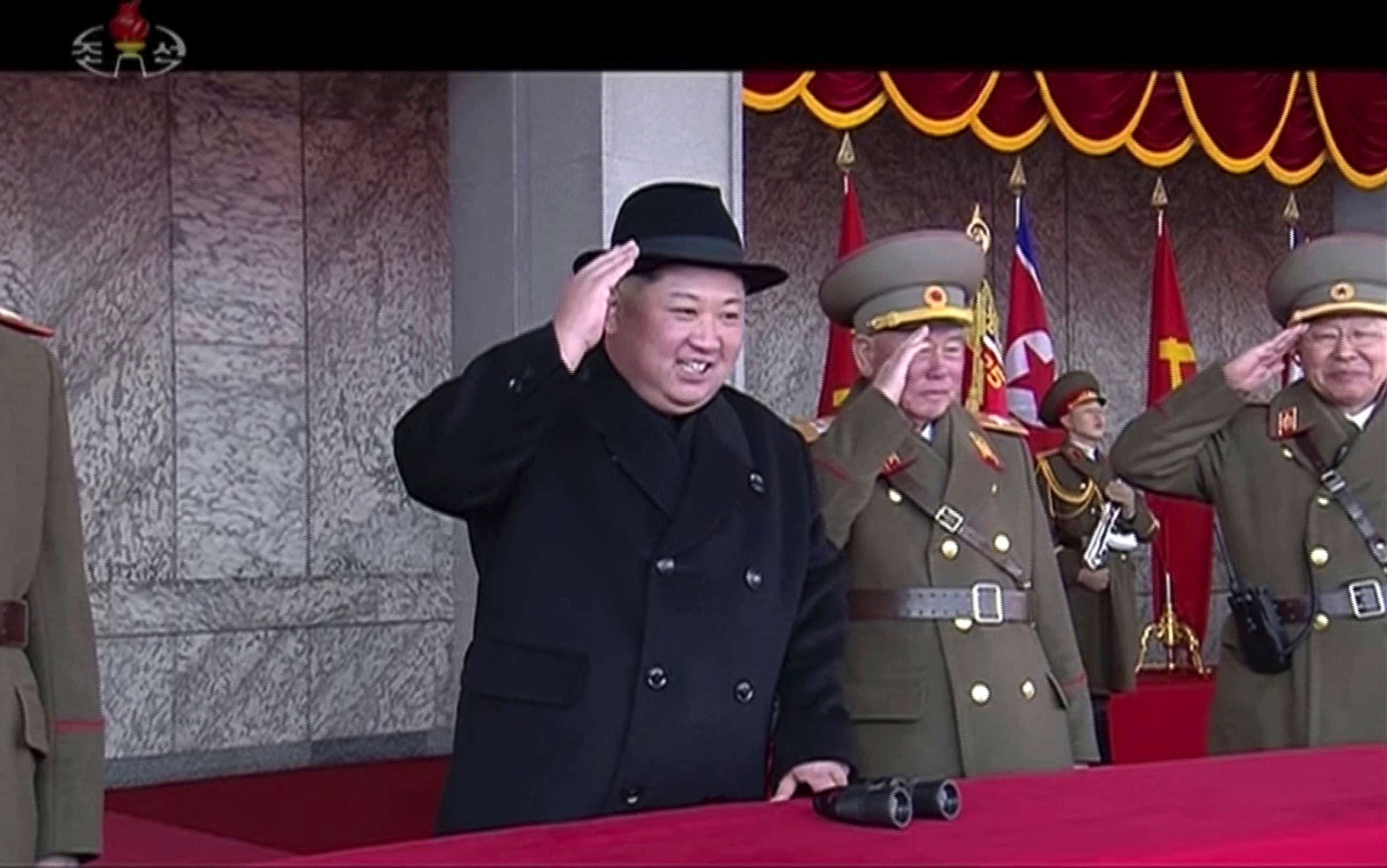
At the same time as his big missiles rolled down the avenue in Pyongyang today, Kim made an important diplomatic overture to South Korea, dispatching his younger sister to Seoul for a Saturday meeting with South Korean President Moon Jae In, the highest level contact in years.
“We certainly hope to utilize this opportunity to the maximum so that the Pyeongchang Winter Olympic Games can become a venue that leads to dialogue for the denuclearization of the Korean peninsula as well as to establishing peace on the Korean peninsula,” Moon said today before meeting with Vice President Mike Pence.
That’s a notably softer tone than Pence’s Wednesday promise to “continue to intensify our maximum pressure campaign until North Korea takes concrete steps toward complete, verifiable and irreversible denuclearization.”
And it’s far more conciliatory than Trump’s November message to South Korea’s parliament that "the world cannot tolerate the menace of a rogue regime that threatens with nuclear devastation."
“I also have come here to this peninsula to deliver a message directly to the leader of the North Korean dictatorship: The weapons you are acquiring are not making you safer,” Trump said in November. “They are putting your regime in grave danger. Every step you take down this dark path increases the peril you face.”
ABC News' Joohee Cho reported from Pyeongchang and Stephen Turnham from Washington, D.C.
